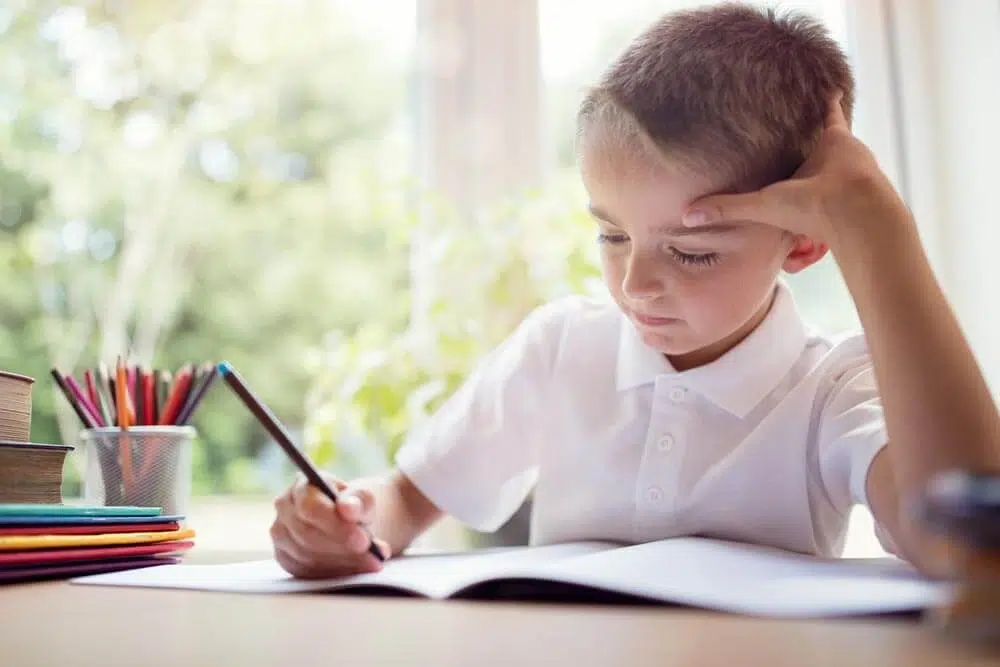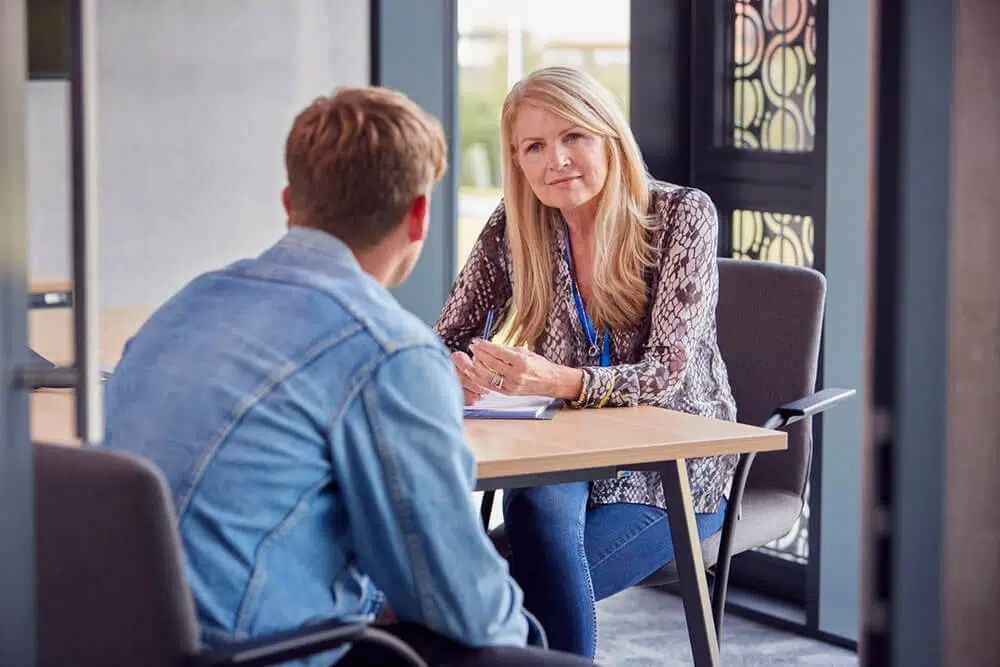What Is a Learning Disability?
Learning disabilities affect people’s ability to learn and interact. A learning disability presents differently in every individual. In many cases, intellectual disabilities impact people’s learning, cognitive and motor skills.
Based on research, there are 1.5 million people with a learning disability in the UK.
People with learning disabilities might need more time to gain and develop new skills, process information, and interact with their families and society. Additional care and support might be needed with running errands, money management and social interactions.
Signs of Learning Disabilities
Learning disabilities are different in each person. Typically, people with a learning disability face different learning and communication challenges that can be addressed with proper support.
Common characteristics of a person with a learning disability include:
- Language difficulties
- Challenges with reading, spelling, writing and math
- Trouble memorising
- Difficulty with abstract thought
- Trouble paying attention
- Difficulty following directions
- Trouble reading the clock and telling time
- Uncoordinated movements
- Struggle with planning and problem-solving activities
Learning Disability Examples
Learning disabilities embrace a range of neurodevelopmental variations that affect people’s cognitive functioning and behaviours. Health professionals identify different factors behind learning disability diversity, such as prenatal, postnatal and genetic influences.
Different types of learning disabilities often co-occur with the following neurodevelopmental conditions, including:
- Down syndrome
- Williams syndrome
- Rhett syndrome
- Fragile X syndrome
- Nonverbal learning disability
- Visual perceptual/visual motor deficit
- Cerebral palsy
- Autism Spectrum Disorder

Learning Disabilities in Children
Every child develops in a unique way and paceline. Many children experience language and writing difficulties. This does not imply that they have a learning disability.
A child with a learning disability may be diagnosed at birth, or parents may notice a difference in their child’s development in early childhood. Children with a learning disability typically show more than one sign of learning disability and some developmental delay.
However, signs of learning disabilities are different in every child. The following symptoms may help caregivers spot potential variations in their child’s developing milestones. Health professionals only establish precise assessments and diagnoses after performing specific tests and evaluations.
Children with a learning disability might show the following characteristics:
- Delay in essential developmental milestones (language, cognitive, or motor skills)
- Trouble saying words correctly
- Struggle with comprehending words and concepts
- Trouble with communication at home and school
- Trouble coping with changed routines and schedules
- Difficulty listening and paying attention
- Struggle with performing school tasks
- Hypersensitive reactions in school or social situations
- Difficulty expressing thoughts
Parents who notice one or more related symptoms of a learning disability or some developmental variations might consult their GP or a related health specialist to receive a precise assessment and support.
Children with learning disabilities possess unique skills, strengths and talents. Trained professionals and parents can identify and recognise the multiple gifts of a child with a learning disability and foster their grasp of knowledge and educational skills.
Learning Disabilities in Adults
Living with learning disabilities sometimes requires additional support for the individual and their family in daily activities. People with a learning disability might face various behavioural, emotional and mental health challenges.
The correct diagnosis empowers people to receive the necessary health and social care support to help them become more independent and self-reliant.
Adults with learning disabilities might face the following challenges:
- Difficulty processing information
- Difficulty learning new skills or learning at a slower rate
- Difficulty comprehending words
- Trouble following a conversation
- Trouble with maths, writing or reading
- Problems with memory
- Difficulty understanding social norms
What Causes a Learning Disability?
Various factors might cause learning disabilities during the prenatal, perinatal and postnatal periods. Sometimes genetics play a role in how a child’s brain will develop.
The most common causes of a learning disability include:
- Chromosome and genetic variations
- Infections during pregnancy
- Premature birth or oxygen deprivation during prenatal development
- Serious infections after birth
- Brain injury

Learning Disability Diagnosis
A complete assessment for a learning disability occurs in several steps and evaluations. Typically, children may show signs of learning disabilities soon after birth or in early childhood. If you notice any difference in your child’s psychological or physical progress, you may consult a GP or another health professional to get an opinion. Early intervention and appropriate care are crucial for people with learning disabilities.
Learning disabilities can be mild, severe or profound based on the intensity. Almost 90% of people with a learning disability have a mild disability.
Learning disability diagnosis is provided by a GP or specialised, established through different evaluations:
- Medical examination consisting of neurological evaluation to identify other potential causes of a child’s learning challenges
- Observing a child’s developmental milestones, social interactions and learning achievement
- Reviewing family health history
- Mental health assessment and academic evaluation
Difference Between Learning Disabilities and Learning Difficulties
A learning disability is often regarded as the same as a learning difficulty. However, there is a difference between the two. Learning disabilities affect people’s interaction, learning and social skills. Learning difficulties affect only a specific learning area of an individual.
Examples of common types of learning difficulties include:
An individual can have one or more learning difficulties with varying intensity, including mild, moderate, severe or profound.
People can have both a learning disability and a learning difficulty. However, it’s important to highlight that with adequate care, and support, people with a learning disability can lead independent and meaningful lives.
What is a Learning Disability Nurse?
Learning disability nurses provide specialist healthcare and assistance to people with learning disabilities. The role of a learning disability nurse is to deliver professional, compassionate and integrated care to a person with a learning disability and help them live independent and fulfilled lives.
Learning disability nurses are well-trained and educated healthcare providers who support individuals with learning disabilities at any age. Sometimes, nurses can lead a team of learning disability support workers.

What are Learning Disability Services?
Learning disability services provide comprehensive care and support to people with learning disabilities. The type and duration of the healthcare support depend on the individual’s needs and preferences.
However, most learning disability support program is supported by:
- Psychological assessment
- Occupational therapies
- Speech and language therapies
- Physiotherapies
- RLD nurses and support team
- Personal care
- 24-hour support
- Live-in care
Close and regular cooperation exists between the learning disability support team, teachers and families.
Learning Disability Services with Unique Community Services
At Unique Community Services, we deliver a unique and multi-faceted approach to people with learning disabilities and complex care needs. Our expertly trained clinicians provide a full assessment and design unique care and support plans tailored to the individual’s needs and preferences.
We provide 24-hour support seven days a week, 365 days a year. Our clinicians are experienced in assisting people with complex care needs from 0-65+ years old. We deliver all-encompassing and integrated care to every individual in need.
At Unique Community Services, we embrace diversity and equality. Our goal is to promote freedom of choice and equal opportunities for everyone. We treat people as family and create a nurturing environment for the people we serve. Our team is dedicated to assisting people in developing new skills and using those skills to live independent and rewarding lives.
Contact us for further information.
